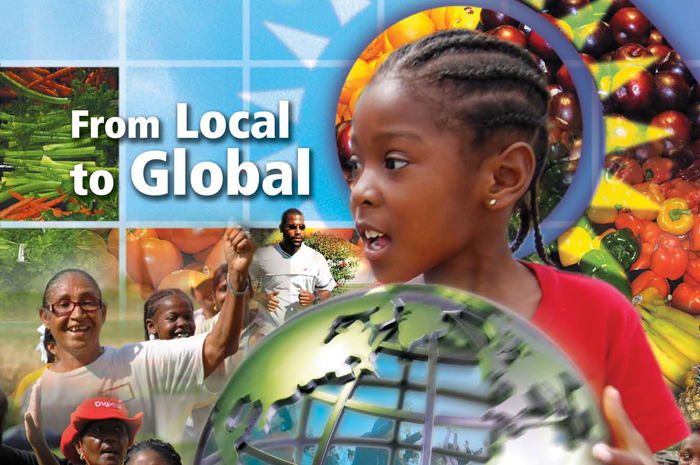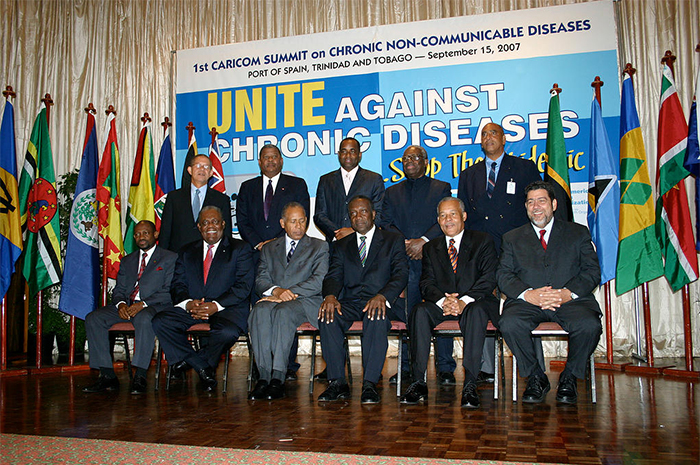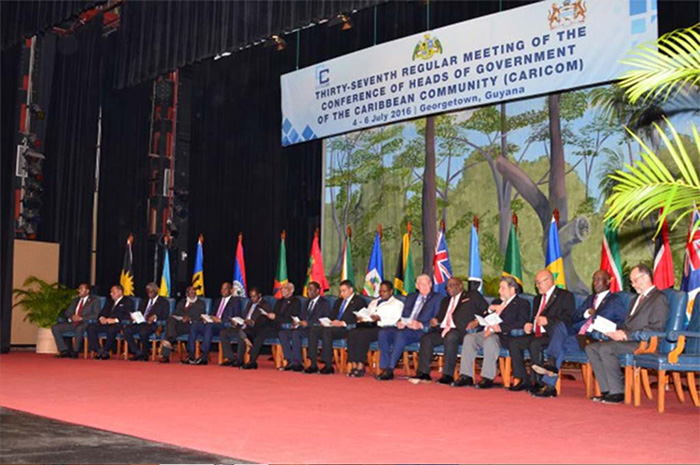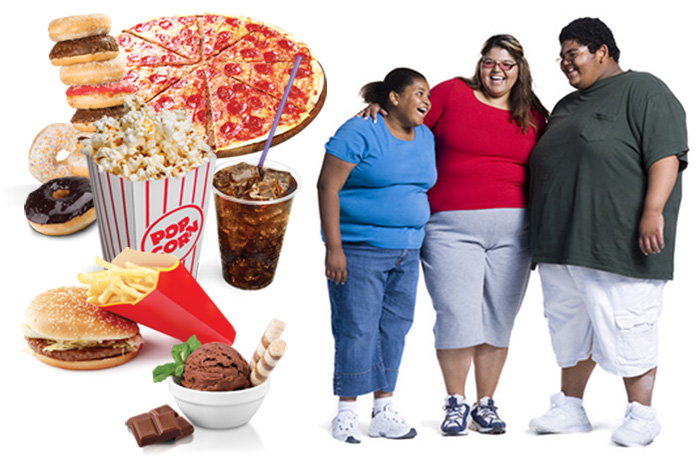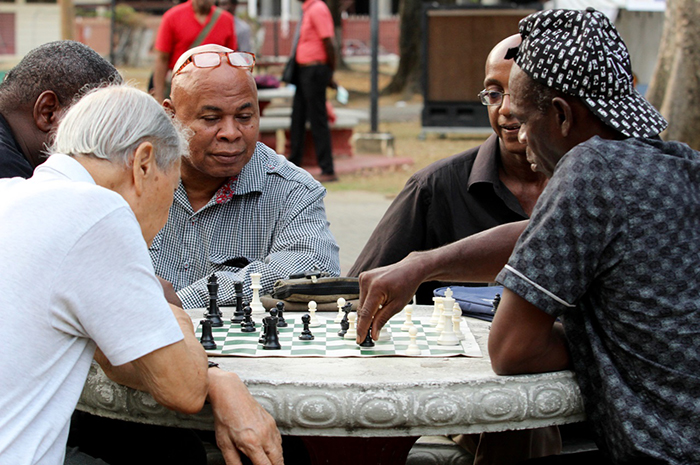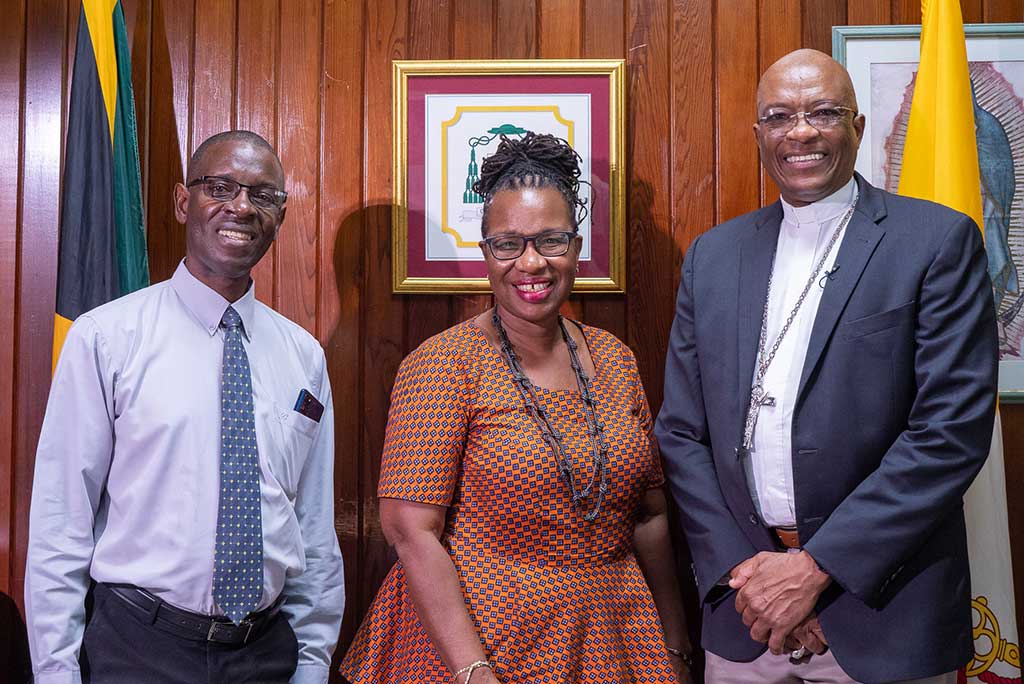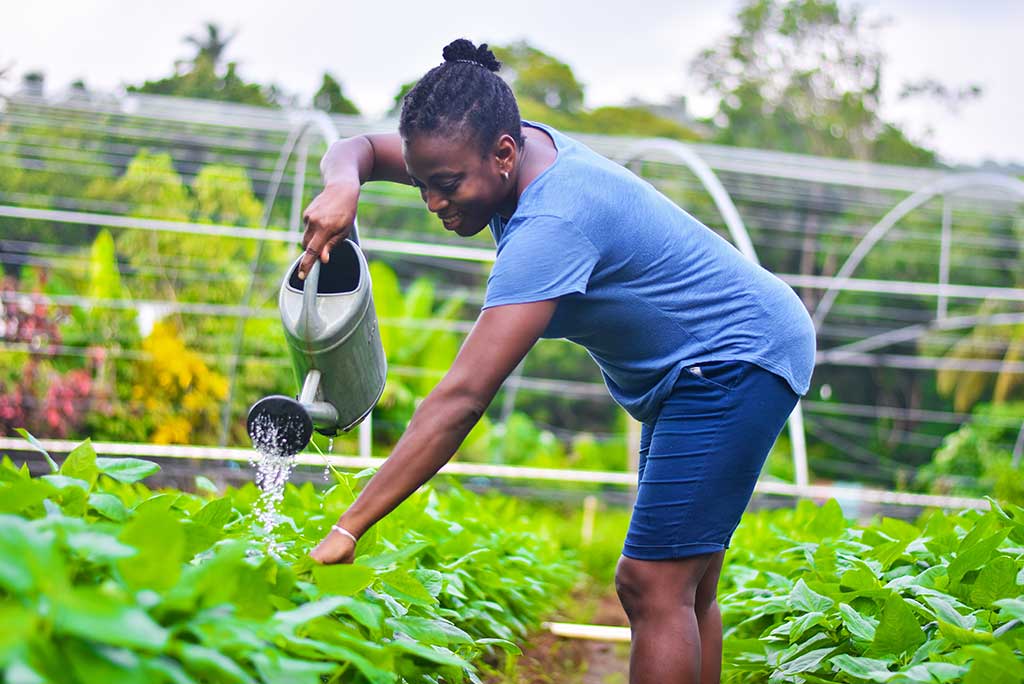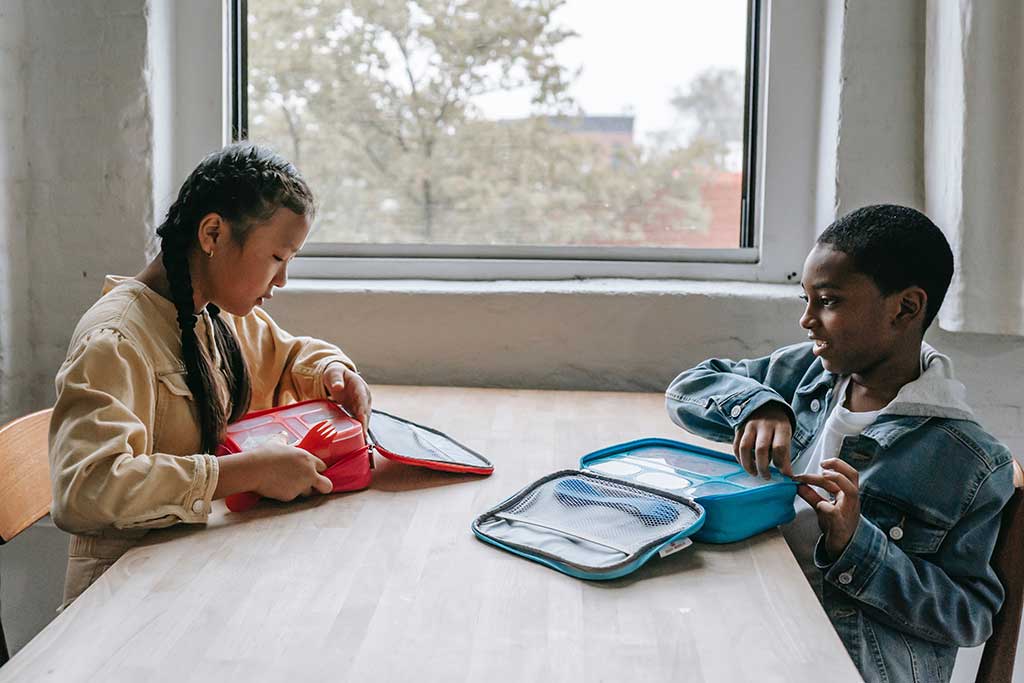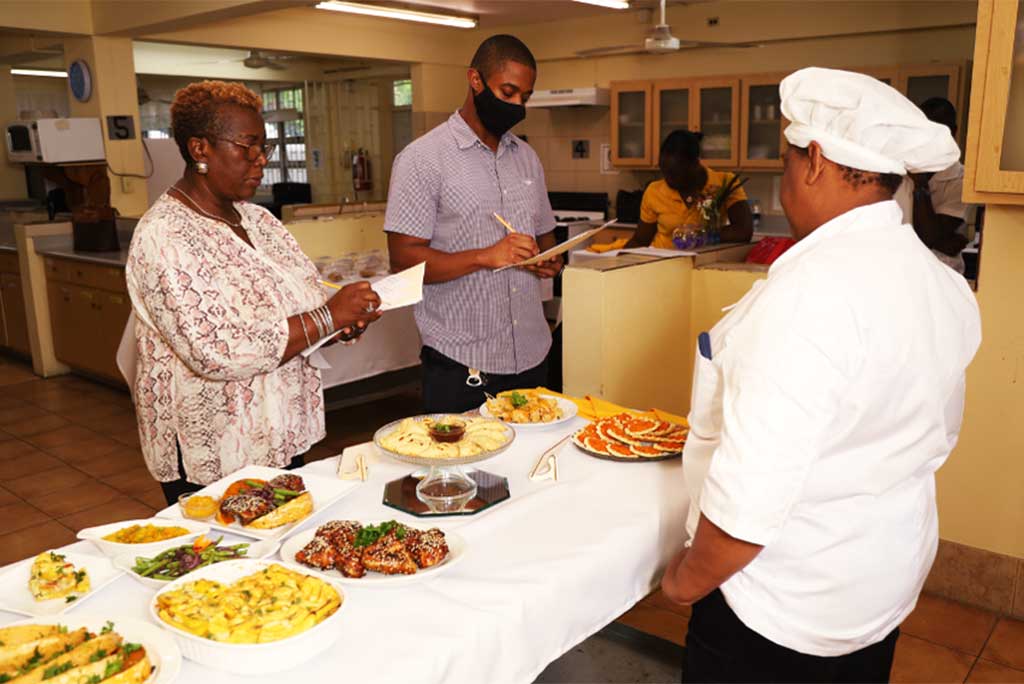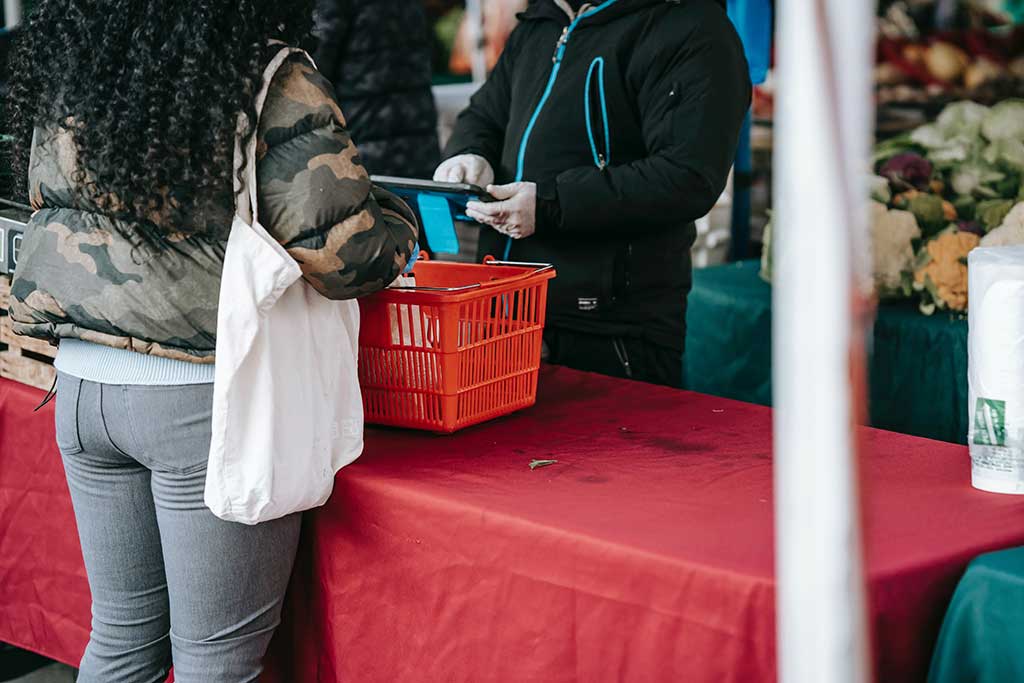What is Food4ChangeCaribbean?
Objective 4 of the Food and Nutrition (FaN) project focused on knowledge-sharing and dissemination with an aim to positively impact study countries and wider CARICOM. The COVID-19 pandemic forced the project to adapt its value chain activities, including the revamp of its image for increased visibility. The brand Food4ChangeCaribbean (F4CC) received formal approval from project executives and stakeholders because of its capacity to convey nutrition messages through a sustainable and cultural lens. The F4CC brand has been fundamental to building awareness of the FaN project’s research findings, advocacy initiatives, and now will be a part of FaN’s legacy by reporting on outcomes and launching tool kits that can serve to inform future food and nutrition work.
This brand, much like this website, is now being offered as a shared platform to assist CARICOM projects focusing on food and nutrition security. It is hoped that the symbolism of the logo, the meaning of the brand and the importance of its message will support projects in years to come.
Intervention Toolkits
Latest Updates
Webinars
Videos
The Port of Spain Declaration Evaluation (POSDEVAL)
The Port of Spain Declaration on Non-communicable Diseases: the path to a healthier Caribbean
In 2007, CARICOM leaders signed the ground-breaking Port of Spain Declaration aimed at uniting to stop the epidemic of NCDs. Now this Declaration is being evaluated by a team of top experts.
Are these ambitious commitments being met? What are the successes and challenges?
The evaluation answers these critical questions.
POSDEVAL Posts
Public perceptions of non-communicable diseases (NCDs)
What does the public understand about NCDs? Have they heard of them? What are their experiences of them and how do they feel they touch their lives?
This was the question that Dr Anique Atherley, a Junior Research Fellow at the University of the West Indies and a group of researchers set out to answer in a quick research project focusing on short street interviews with Barbadian men and women. They captured a variety of opinions in a variety of settings around the island.
Here is a selection of their voices.
Living with cancer: Michelle’s story
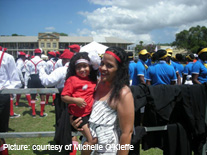
Michelle O’Kieffe was diagnosed with an aggressive form of breast cancer at the age of 32. Having been in remission for many years, she is determined to improve support for women living with cancer in Trinidad and Tobago. Here is her story.
My name is Michelle O’Kieffe and I live in Trinidad. I was diagnosed with breast cancer in February 2000 at the age of 32.
I discovered a small lump just below my right breast. When I went to get it checked out the doctors were more panicked than I was. I didn’t have a clue that it could be cancer. There was no history of it in my family and I was young, 121 pounds, I didn’t smoke, I was vegetarian, really active.
But when I got the diagnosis, that the cancer had already spread, I took it in my stride. I saw it as another challenge, another hurdle to get over. If anything it was harder on my mum who was alive at the time. She took all the worry, all the emotion, asked all the questions that I didn’t want to ask.
It was hard on my husband and kids as well. I had two sons Christopher aged 12 and Christian 6. I started preparing them for what might happen.




